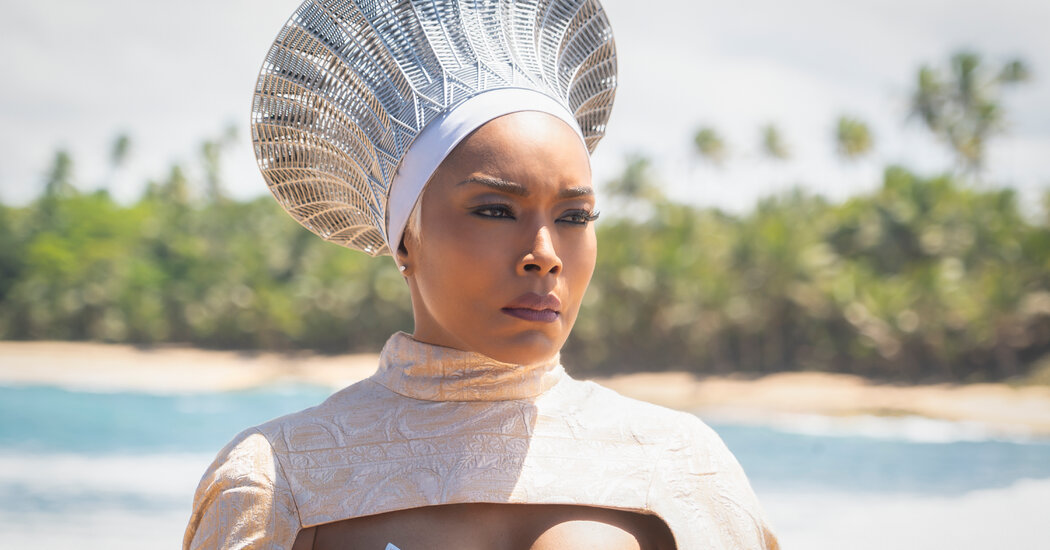“Black Panther: Wakanda Forever” bagged a staggering $180 million in North American theaters this weekend, ending one of the worst box office droughts ever and reaffirming that Disney-owned Marvel Studios is the ruling blockbuster factory. from Hollywood.
Abroad, the superhero sequel collected another $150 million.
Still, the mood in the film industry was much less festive than in February 2018, when the first “Black Panther” arrived as a full-fledged cultural event. It sold $202 million in tickets in its domestic theaters in its first weekend and took out $680 million abroad, shattering a Hollywood myth about the international viability of films rooted in black culture with largely black casts.
This time, entertainment companies are grappling with a box office that is slow to recover from the pandemic. Ticket sales in the United States and Canada total $6.5 billion, according to Comscore, down 33 percent from the same period in 2019. Apart from October 2020, when many theaters were closed due to the coronavirus pandemic, October was the worst. for Hollywood in 21 years, since the aftermath of the 9/11 attacks.
Cineworld, owner of theater chain Regal in the United States, recently filed for bankruptcy. On Friday, as losses in the streaming operation mounted, Disney said it was embarking on a cost-cutting campaign that includes layoffs and a “rigorous review of the company’s content and marketing spend.”
In other words, the big turnout for “Wakanda Forever” was received with pleasure, but far from being a panacea.
Return to Wakanda
“Black Panther: Wakanda Forever,” directed by Ryan Coogler and starring Letitia Wright and Lupita Nyong’o, hits theaters November 11.
The Marvel spectacle, estimated to have cost $250 million to produce and another $100 million to market, played in 4,396 theaters in North America. The rise of “Wakanda Forever” was especially high in the major IMAX theaters, where domestic ticket sales of $14.2 million set a record for a November opening. Richard L. Gelfond, the CEO of IMAX, said the chain’s results abroad were equally robust.
While “Wakanda Forever” didn’t surpass first-movie ticket sales — second chapters, as a rule, are better than their franchise predecessors — it still performed well enough to be among the best second installments ever, according to David A. Gross, a film consultant who publishes a subscription newsletter at box office numbers. In first place, “Avengers: Age of Ultron” (Marvel) grossed $191.3 million in 2015. “Doctor Strange in the Multiverse of Madness” (Marvel) reached $187.4 million in May and placed second.
“‘Wakanda ‘should dominate the cinema during Thanksgiving and December,’ said Mr. gross. Reviews were overwhelmingly positive, he noted, and ticket buyers gave the film an A in CinemaScore exit polls. (The first film got an A-plus.)
Much of the talk around “Wakanda Forever” has been about what it’s missing — namely the first film’s charismatic star, Chadwick Boseman, who died of colon cancer in 2020. He was 43 and had kept his diagnosis a secret. Ryan Coogler, who directed and co-wrote both films, decided not to recast Mr. Boseman’s character and turned the sequel into an action-packed meditation on loss and grief. Two of the supporting actresses from the first film, Letitia Wright and Angela Bassett, were featured in the sequel.
Ms Bassett’s emotional performance sparked early Oscar buzz. If nominated for an Academy Award, Ms. Bassett would be the first Marvel film actor to receive the honor.
“Wakanda Forever” was always going to be a hit, but Disney marketers left nothing to chance. The studio’s chief of marketing, Asad Ayaz, orchestrated a global campaign that saw the cast walk out on red carpets at premieres in New York, Los Angeles, London, Mexico City and Lagos, Nigeria. In the United States, the film was shown every day for a week on “Good Morning America” on Disney-owned ABC. Promotional partners included Lexus, Mastercard, Target, Adidas, Procter & Gamble, the National Basketball Association and McDonald’s.
To top it off, Rihanna recorded her first solo music in six years for the soundtrack of ‘Wakanda Forever’.
The strong results seem to allay concerns about Marvel’s ability to continue as a superpower at the box office. Soft results for “Eternals” last November, at least by Marvel standards, and Marvel’s expansion into the Disney+ series led some people to believe that Kevin Feige, the child prodigy who leads Marvel, had spread too thin.
But all three Marvel theatrical releases in 2022 were huge successes. “Doctor Strange in the Multiverse of Madness” generated $956 million in worldwide ticket sales, surpassing its franchise predecessor by 41 percent. And “Thor: Love and Thunder”, which didn’t play in Russia and China, still raised $761 million in July.

